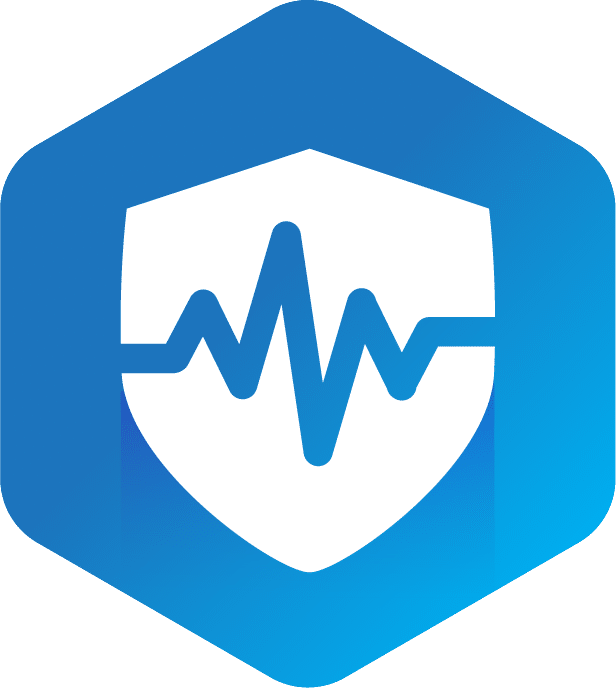Have you ever heard of HIPAA? It’s an acronym that stands for the Health Insurance Portability and Accountability Act, a law passed in 1996 with the aim of ensuring the privacy and security of individuals’ health information. Think of HIPAA like a fortress that protects your personal health data from unauthorized access or use. In today’s digital age where data breaches are becoming increasingly common, HIPAA is more important than ever before.
HIPAA has three key provisions: the Privacy Rule, Security Rule, and Breach Notification Rule. Each provision serves a distinct purpose but they all work together to safeguard sensitive patient information. The Privacy Rule establishes national standards for protecting individuals’ medical records and other personal health information. The Security Rule sets out guidelines for safeguarding electronic protected health information (ePHI), while the Breach Notification Rule requires covered entities to notify individuals affected by any unauthorized disclosure or misuse of their PHI. Together, these provisions create a comprehensive framework that healthcare organizations must adhere to in order to protect patients’ privacy rights.
Do you know what HIPAA is and how it affects you? Well, did you know that over 100 million people in the US have had their healthcare information exposed in data breaches since 2009, emphasizing the importance of HIPAA regulations? HIPAA stands for Health Insurance Portability and Accountability Act. It is a federal law that was enacted to protect patients’ medical records and personal health information from being disclosed without their consent.
HIPAA violations can result in hefty fines for healthcare providers, as well as loss of trust from patients. It’s important for all healthcare professionals to be familiar with HIPAA compliance regulations. This includes proper handling and storage of patient records, limiting access to sensitive information, and conducting regular HIPAA training sessions for employees.
Ensuring HIPAA compliance not only protects patients’ privacy but also safeguards your practice or organization from potential legal repercussions. Now that you understand the definition and importance of HIPAA, let’s delve into its key provisions.
You’ll want to know about the key provisions of HIPAA, which outline important rules and regulations for protecting individuals’ healthcare information. To ensure compliance with these requirements, healthcare providers must understand the scope of protected health information (PHI) and how it can be used. PHI includes any information that can identify a patient, such as their name, social security number, or medical history. Healthcare providers must obtain written consent from patients before disclosing any PHI.
Enforcement mechanisms are in place to ensure that healthcare providers comply with HIPAA regulations. These mechanisms include audits, investigations, and penalties for non-compliance. If a provider is found to have violated HIPAA rules, they may face fines ranging from $100 to $50,000 per violation. In addition to monetary penalties, providers may also lose their license or be prohibited from participating in Medicare programs.
Business associate agreements are another vital component of HIPAA compliance requirements. These agreements are between healthcare providers and their vendors or contractors who handle PHI on their behalf. Business associates must comply with all HIPAA regulations and maintain the confidentiality of PHI at all times. Failure to do so could result in fines and other penalties.
As you move into the subsequent section about ‘HIPAA Privacy Rule,’ keep in mind that patient rights are an essential part of this legislation’s framework. The Privacy Rule gives patients the right to access their medical records and request corrections if necessary. Additionally, patients have the right to file complaints if they believe their privacy has been violated. Understanding these patient rights is crucial for healthcare providers looking to remain compliant with HIPAA regulations.
Explore the importance of protecting patients’ privacy by delving into the details of HIPAA’s Privacy Rule and how it affects healthcare providers like yourself. The HIPAA Privacy Rule sets national standards to protect individuals’ medical records and other personal health information (PHI). It requires covered entities, such as healthcare providers, to implement policies and procedures to safeguard PHI from unauthorized disclosure.
Patients have specific rights under the HIPAA Privacy Rule, including the right to access their own medical records, request corrections to those records, and receive a notice of privacy practices from their healthcare provider. Covered entities must also limit access controls on a need-to-know basis by using minimum necessary standards. This means that only authorized personnel should have access to PHI when they need it for treatment purposes or other permitted uses.
Personal representatives of patients can also request access to PHI if they are legally authorized to act on behalf of the patient. However, covered entities must verify the identity of these individuals before disclosing any PHI. Failure to comply with the HIPAA Privacy Rule can result in significant penalties for healthcare providers, so it is crucial for them to implement appropriate safeguards and stay up-to-date with any changes or updates in regulations.
As you can see, understanding and complying with the HIPAA Privacy Rule is essential for healthcare providers like yourself. However, protecting patient privacy does not end there. The next section will explore another critical component of HIPAA: its Security Rule which focuses on electronic protected health information (ePHI) security measures required by law.
Ensuring the security of electronic protected health information (ePHI) is crucial for healthcare providers to protect their patients’ sensitive data and prevent potential data breaches that could harm their reputation and trust with patients. The HIPAA Security Rule establishes national standards for protecting ePHI that is created, received, maintained, or transmitted by covered entities and business associates. Compliance with the Security Rule requires a risk analysis to identify potential risks and vulnerabilities in the confidentiality, integrity, and availability of ePHI.
Administrative safeguards are policies and procedures designed to manage security measures for ePHI. This includes assigning a security officer responsible for developing and implementing security policies, workforce training on security procedures, periodic evaluations of the effectiveness of security measures, and incident response plans in case of a breach. Physical safeguards refer to physical measures used to secure facilities housing ePHI such as access controls (e.g., locks), workstation use policies, facility access controls (e.g., surveillance cameras), device encryption protocols, etc. Technical safeguards include technology-based protections such as access controls (e.g., passwords), encryption/decryption mechanisms for transmitted data over networks (e.g., SSL/TLS), audit trails logs recording user activity related to accessing or altering ePHI.
In order to comply with the implementation specifications under each safeguard category listed above which indicate specific details about how covered entities must meet each safeguard requirement; healthcare providers need a comprehensive understanding of HIPAA’s Security Rule requirements alongside an accurate assessment of their own organization’s capabilities related to meeting those requirements. With proper compliance practices in place that meet these guidelines coupled with regular assessments based on current risks; your organization can provide better protection against potential breaches while maintaining adequate privacy standards throughout all electronic medical records management processes.
The next subtopic will be discussing ‘HIPAA Breach Notification Rule’.
The HIPAA Breach Notification Rule requires covered entities to report any unauthorized access, use, or disclosure of unsecured protected health information (PHI) that compromises the privacy or security of individuals’ PHI. Covered entities include healthcare providers, health plans, and healthcare clearinghouses. Failure to comply with the notification requirements can result in significant enforcement actions.
To determine if a breach has occurred, covered entities must conduct risk assessments to evaluate the probability and impact of a potential breach. If a breach is suspected, covered entities must follow breach response planning procedures to mitigate harm and notify affected individuals as soon as possible. This includes providing details about the nature of the breach, steps being taken to investigate and mitigate harm, and contact information for affected individuals.
In addition to notifying affected individuals, covered entities may also be required to notify media outlets under certain circumstances. The Department of Health and Human Services’ Office for Civil Rights oversees enforcement of the HIPAA Breach Notification Rule and can impose civil monetary penalties for noncompliance. It’s crucial that covered entities understand their obligations under this rule and have robust policies in place to ensure compliance with notification requirements in case a breach occurs.
Now that you have a comprehensive overview of HIPAA, it’s important to understand the gravity of its provisions. On one hand, HIPAA demonstrates a commitment to protecting patient privacy and data security. This is especially important in an increasingly digital healthcare landscape where sensitive information can be easily accessed or hacked. However, on the other hand, HIPAA also places considerable responsibility on covered entities to ensure compliance with regulations and report any breaches.
While HIPAA may seem daunting at first glance, it ultimately serves as a safeguard for patients and their confidential information. By understanding its key provisions – including the Privacy Rule, Security Rule, and Breach Notification Rule – you can take proactive steps toward ensuring compliance within your organization. Remember that preserving patient trust is paramount in healthcare, and adhering to HIPAA guidelines can help maintain this trust while promoting the highest level of care possible.

